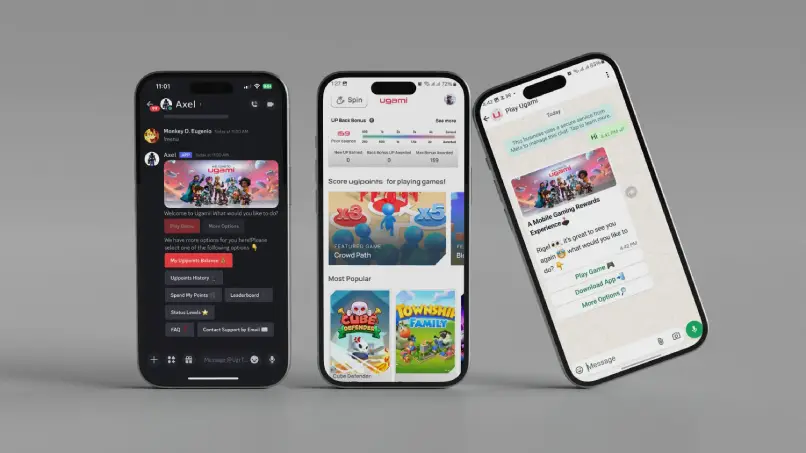Why Play-to-Earn Incentives Are Altering the Means You Play and Gain
The introduction of play-to-earn designs signifies a remarkable change in the pc gaming landscape, inviting players to check out not just the amusement worth of video games but likewise their prospective as income-generating systems. Understanding these dynamics raises pertinent questions regarding the future of pc gaming and the ramifications for both players and developers alike.
Appearance of Play-to-Earn Versions
In recent times, the video gaming industry has actually experienced a significant change with the introduction of play-to-earn versions, essentially modifying just how gamers involve with digital environments. This ingenious strategy permits gamers to obtain tangible incentives via their in-game activities, producing a shift from conventional gaming standards where enjoyment and competitors were the key motivations.
Play-to-earn versions utilize blockchain modern technology and non-fungible tokens (NFTs) to supply gamers with ownership of in-game properties, which can be traded or offered for real-world money. Because of this, players are incentivized to invest effort and time into video games, fostering a sense of company and monetary chance. play to earn rewards. This shift has attracted a varied player base, including those who may have formerly checked out pc gaming as a purely leisure task
Numerous systems have actually emerged, showcasing effective executions of this design, such as Axie Infinity and Decentraland. These systems have not just produced substantial profits but also stimulated conversations around the sustainability and ethics of such financial systems. As play-to-earn versions remain to develop, they guarantee to redefine the partnership in between players, developers, and the more comprehensive digital economic climate, paving the way for a new age in pc gaming.
Advantages for Players
As players involve with play-to-earn versions, they open a variety of advantages that extend beyond plain amusement. Among one of the most substantial advantages is the potential for economic incentives. Unlike traditional pc gaming, where players invest money and time without substantial returns, play-to-earn systems enable players to gain copyright or in-game possessions that can be transformed to real-world worth. This economic incentive not only improves engagement yet likewise cultivates a feeling of possession over the gaming experience.
In addition, play-to-earn versions advertise neighborhood structure among players. Players commonly collaborate to accomplish common goals, therefore cultivating social connections that improve the total experience. This sense of community can cause cooperative gameplay, where players share techniques and resources, improving both individual and team success.
Furthermore, these versions can equalize accessibility to video gaming by enabling players from diverse economic histories to profit economically. By joining play-to-earn communities, individuals can obtain abilities and knowledge concerning blockchain modern technology, more expanding their profession opportunities in the expanding digital economy. Eventually, the benefits for gamers expand well beyond gameplay, impacting their social, economic, and instructional landscapes favorably.
Difficulties in the Ecosystem
While the play-to-earn environment offers substantial chances, it is not without its difficulties. One significant concern is the volatility of in-game money and properties, which can bring about uncertain incomes for players. Variations in value can discourage prospective gamers that seek steady earnings streams - play to earn rewards. Additionally, the complexities of blockchain modern technology might perplex users unknown with digital money, producing barriers to entrance.
Another challenge is the risk of scams and fraudulent systems that can torment the environment. Players might experience deceitful systems promising high rewards but ultimately resulting in monetary loss. Making certain depend on and safety is important for link the long-term stability of play-to-earn versions.
In addition, the environmental influence of blockchain gaming can not be overlooked. The energy usage related to mining and purchase processing increases ethical questions concerning sustainability. Video game programmers must locate a balance in between gratifying gamers and decreasing environmental footprints.
Last but not least, the regulatory landscape is still developing, posing possible dangers for developers and gamers alike. Uncertain lawful frameworks can prevent innovation and limit the development of play-to-earn communities. Dealing with these difficulties is crucial for understanding the complete potential of this transformative pc gaming paradigm.
The Duty of Blockchain Modern Technology
Blockchain innovation functions as the backbone of the play-to-earn community, addressing most of the obstacles formerly detailed. By making use of decentralized ledgers, blockchain ensures transparency and protection in transactions. Players can confidently earn and trade in-game possessions, understanding that possession is verifiable and exempt to adjustment.

Tokenization of assets plays a vital role, providing gamers real possession of their in-game items, which can be acquired, sold, or traded on various marketplaces. This encourages a lively second market, where players can monetize their abilities and time bought the game.
Moreover, blockchain technology allows interoperability between various video games and platforms, enabling gamers to carry their assets throughout different ecological communities. This adaptability not just boosts individual experience but likewise promotes an extra inclusive pc gaming atmosphere, inevitably improving the landscape of gaming and earning.
Future Fads in Gaming
The pc check it out gaming sector is on the brink of a transformative development, driven by arising technologies and shifting gamer expectations. As play-to-earn models gain grip, gamers are increasingly seeking immersive experiences that blend home entertainment with tangible rewards. This shift is triggering developers to introduce, focusing on developing engaging gameplay that cultivates community and communication.
One remarkable trend is the combination of online truth (VR) and increased truth (AR), enhancing the video gaming experience by giving much deeper immersion and interactive atmospheres. Furthermore, innovations in synthetic intelligence are enabling more sophisticated non-player personalities (NPCs) and flexible gameplay, customizing experiences to individual gamer choices.

Final Thought
To conclude, the play-to-earn home version is considerably transforming the pc gaming landscape by making it possible for players to derive real-world worth from their in-game tasks. This paradigm change not only enhances player involvement and financial investment but also raises obstacles that need to be dealt with to ensure sustainability within the ecological community. As blockchain technology remains to promote possession of digital possessions, the future of gaming assures further innovation and chances for gamers throughout varied histories.